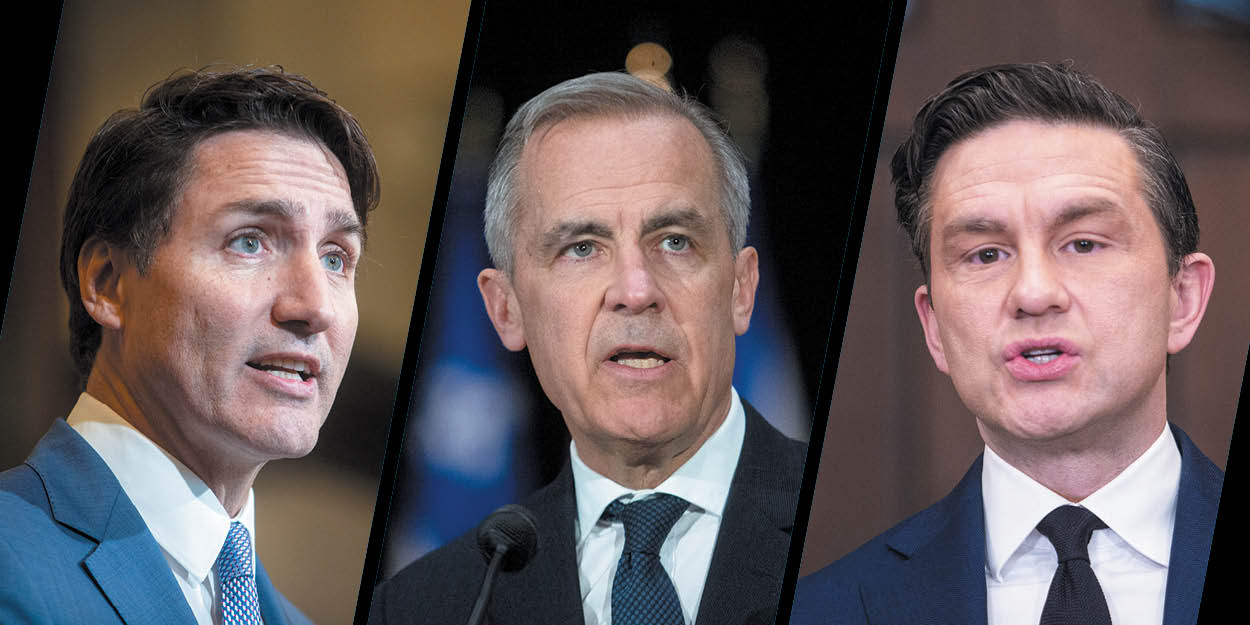Poilievre can win votes by exploiting Liberal foreign policy failures

OTTAWA—As the federal election heats up, Conservative Leader Pierre Poilievre has a tactical opportunity to exploit former prime minister Justin Trudeau’s foreign policy fumbles. To use his own words, Poilievre can promise to put “Canada First,” while also pointing to where the Liberal government Mark Carney now leads failed to do just that.
Even under ideologically rigid prime ministers like Stephen Harper, Canada was viewed as a model of multilateral engagement and international co-operation. Trudeau shifted that trajectory by driving Canada straight into the orbit of singularly supporting American geopolitical interests. It has diminished our global standing. We are now paying the price for the Liberal government’s missteps.
The shift began early in his tenure. In 2016, Trudeau’s first foreign minister, Stéphane Dion, spoke of acting with “responsible conviction” and a “quest for peace.” Yet, one of his first major decisions was to approve a $15-billion deal to sell light armoured vehicles to Saudi Arabia—an ally in the United States-directed war against Yemen. By 2021, that war claimed nearly 400,000 lives.
Dion borrowed the phrase “responsible conviction” from Max Weber’s 1905 treatise, The Protestant Ethic and the Spirit of Capitalism, which argued that political conduct is rooted in either the ethics of conviction—as in actions based on prescriptive dogma—or the ethics of responsibility: actions based on anticipated consequences. By combining the two into one vague slogan, Dion deliberately obscured the ethical clarity needed to make principled decisions.
Substituting clever clichés for sound policy continued under Trudeau’s last foreign affairs minister, Mélanie Joly. She coined her own term—”pragmatic foreign policy”—which suggests an enlightened self-interest and ethical intent. In practice, from her Indo-Pacific policy to create Cold War conditions with China to military quagmires in Haiti and Ukraine, and the $74-billion to buy U.S.-made F-35 jets deepened and aligned our dependence on the Americans. Joly remains in Carney’s cabinet, and is running for re-election under his “new” Liberal government.
This dependency comes with a cost. In 2024, under pressure from then-U.S. president Joe Biden, Trudeau imposed a 100-per-cent surtax on Chinese electric vehicles, prompting Beijing to retaliate with the same levy on our agri-foods. Who benefits from this? It’s not Canadian farmers.
Former Liberal foreign minister Lloyd Axworthy gave Trudeau a “B-” on this file—a generous assessment. Axworthy points to a “complete negligence of peace-keeping,” and that Trudeau’s feminist foreign policy “lacked significant commitments beyond rhetoric.” He also notes that Trudeau depleted Canada’s diplomatic capacity, weakening our international autonomy.
On the feminist foreign policy, for example, Trudeau snubbed Cuba and Nicaragua—the top two countries with over 50 per cent gender parity in their parliaments—and pulled the third, Rwanda, under U.S. influence, seemingly to enable the extraction of critical minerals from the Democratic Republic of Congo. He changed course only on March 3, after 7,000 deaths and a million people got displaced—but more notably, only after the U.S. criticized Rwanda’s brutality.
The solution is not to sever ties with the U.S. That’s unrealistic given our proximity. It is to insulate Canada from Washington’s whims by operating under the ethics of responsibility, and rebuilding relations severed in the pursuit of empty buzzwords like “friend-shoring.” It was a favourite term for Chrystia Freeland, who, despite being Trudeau’s longtime deputy prime minister, also sits in Carney’s new cabinet.
Perhaps Trudeau saw some windfalls by anchoring Canada to the American geopolitical agenda. The truth, however, is that in international relations, there are no friends, only national interests. We must shed the illusion of alliances, and prioritize our own sovereignty. If left unchecked, Trudeau’s misguided legacy could turn Canada into a permanent satellite state, which—as U.S. President Donald Trump has clearly demonstrated—comes with a lot of chronic pain.
In fact, with his tariffs, Trump has upended the old rules-based order, and sped up the global power transition from unipolarity to multipolarity. In this changing dynamic, countries will either capitulate and be controlled by a superpower—like Israel is with the U.S. or Belarus with Russia—or they will carve out their own non-aligned identity. Trudeau’s choice of the former turned Canada into an American aide-de-camp. We cannot repeat his slip-ups.
Poilievre can attack Carney by challenging the Liberal record with a “Canada First” strategy on foreign policy, too. He could propose to rebuild relations with China, Russia, and other nations with whom we have no intractable issues that can’t be resolved through diplomatic effort; diversify trade by targeting emerging green economies in Latin America, Africa, and Asia; and he can pledge to restore this country’s reputation as the leading voice for peace and stability.
For inspiration, he could look to past prime ministers: Brian Mulroney’s firm stance on human rights and the environment; Joe Clark’s commitment to diplomatic integrity; and Jean Chrétien’s defence of our foreign policy independence all offer good models of seasoned leadership.
But Poilievre must act quickly. Carney has already distanced himself from Trudeau, admitting the end of “deepening economic integration and close security and military co-operation” with the U.S. This means that Canadians are likely wondering which party leader understands how we got into this mess—and who has a plan and political courage to get us out of it?
Bhagwant Sandhu is a retired director general from the federal public service. He has also held executive positions with the governments of Ontario and British Columbia.
The Hill Times






 LICENSING
LICENSING PODCAST
PODCAST ALERTS
ALERTS


